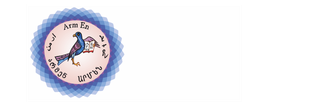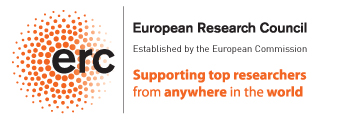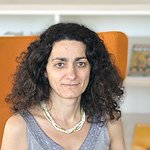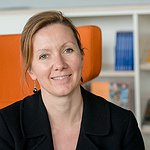Armenia Entangled
Reimagining Cultural Encounters and Connectivity in Medieval Eurasia 9th - 14th Century

The ERC-project Armenia Entangled deals with the entangled history of the Armenian plateau and its adjacent areas. It is based at the University of Florence, Italy, under the leadership of Primary Investigator, Prof. Zara Pogossian. A subproject is established at the Center for Religious Studies (CERES) and conducted by two experts in the dynamics of interreligious encounters in the Middle East, Prof. Alexandra Cuffel and Dr. Barbara Roggema.
The project plans to establish a new framework for the study of Armenia as a space of cultural entanglements between the 9th to 14th centuries. It views the history of the Armenian plateau and the wider area from the south of the Caucasus mountain range to Anatolia and northern Mesopotamia region as a key to understanding the history of medieval Eurasia. The region was on the crossroads of expanding Eurasian empires and population movements, yet at the same time removed from major hubs of power. Poly-centrism, political, ethno-linguistic, and religious heterogeneity, and frequently shifting hegemonic hierarchies were key aspects of its inter-connected landscape. This fluidity and complexity left its mark on its cultural products – textual and material.
Therefore, Armenia Entangled aims to trace shared features in the multi-lingual textual and artistic production of Armenia and correlate them to the circulation of ideas and concepts, as well as to real-life interactions, between multiple groups, identifying the locations and agents of entanglements. The large but under-utilised body of Armenian sources to be explored together with sources in Arabic, Georgian, Greek, Persian, Syriac, and Turkish, will illuminate cultural entanglements between Muslim Arabs, Christian Arabs, subjects of the Byzantine Empire, Syriac Christians, Georgians, Caucasian Albanians, a number of Turko-Muslim dynasties, Kurds, Iranians, Western Europeans, and Mongols, that inhabited, conquered, or passed through and produced cultural goods in the region.
Thus, the project seeks to create a trans-cultural vision of Armenia, bridging area studies into a unifying framework, bringing together various disciplinary approaches (philology, literary criticism, religious studies, art history, numismatics, etc.), to build a narrative synthesis in which the dynamics of cross-cultural entanglements emerge in their spatial and temporal dimensions.
In the subproject, Barbara Roggema (CERES) studies sources for the history of Armenian-Middle Eastern religious interaction during this period. She is researching hitherto unstudied Arabic and Syriac texts, with an emphasis on writings that reflect religious confrontations and exchanges between Armenian Christians, Syriac Christians and Muslims. Together with Zara Pogossian she researches the polemics of Abraham of Tiberias, originally written in Arabic and translated into Armenian, as well as the Armenian sources on the life of the Prophet Muhammad.
Prof. Alexandra Cuffel (CERES) is working on the epics and the role of women as cultural brokers between religious and ethnic groups. Roggema and Cuffel will also contribute to the conceptualization of a theoretical framework for the study of cultural entanglements under conditions where there was no overarching hegemonic power, single elite culture, or one unifying religious message/tradition.
Duration
10/2020 – 09/2025
Funded by

Affiliated Persons




